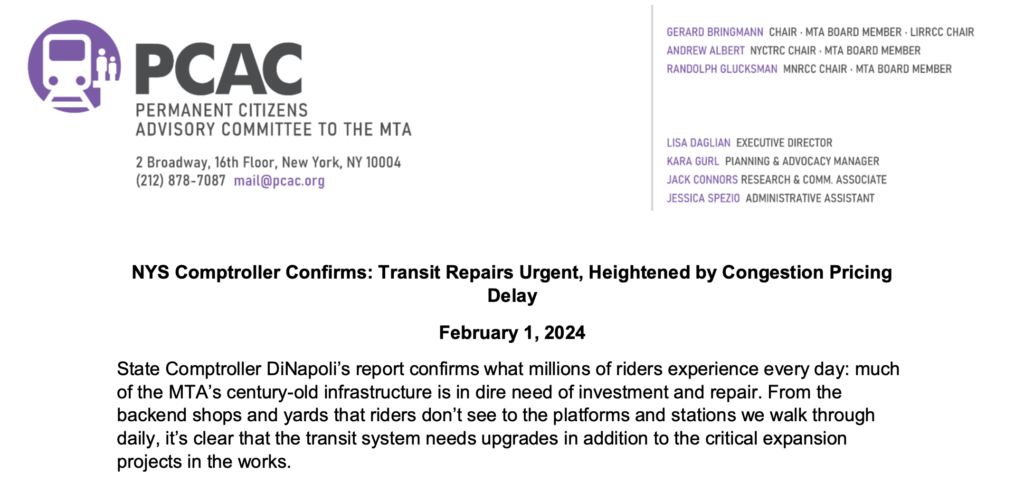State Comptroller DiNapoli’s report confirms what millions of riders experience every day: much of the MTA’s century-old infrastructure is in dire need of investment and repair. From the backend shops and yards that riders don’t see to the platforms and stations we walk through daily, it’s clear that the transit system needs upgrades in addition to the critical expansion projects in the works.
The Comptroller’s assessment that the MTA needs $43 billion for capital repairs and upgrades over the next capital program is striking, but unsurprising following the recent Twenty-Year Needs Assessment that emphasized the urgency of State of Good Repair work around the transit system. We call on the MTA to be transparent in future assessments with the dollar amounts needed to upgrade and maintain similar State of Good Repair projects—in the words of the Comptroller, omitting precise cost information makes it harder for advocates and other stakeholders to understand “what level of funds [the MTA] will need from outside sources to pay for its capital program and the growing cost of its important efforts to strengthen the system’s resilience and accessibility.”
Underscoring the extensive repairs and upgrades needed around the transit system only heightens the need for Congestion Pricing. We’ve learned in recent MTA Board meetings that delays to Congestion Pricing have already caused tangible holdups in awarding contracts and getting important repair and upgrade work done for riders.
Today Governor Hochul showed us the future of subway cars with the open gangway R211s. Getting them on track, and more train cars on the LIRR and Metro-North, while fulfilling the commitment to an all- electric bus fleet, requires a steady funding stream now and into the future. As the MTA fulfills the FY20-24 capital program and embarks on its next, it’s absolutely critical that the funding riders are depending on from Congestion Pricing comes through—without further holdup from senseless lawsuits. With 25% of subway delay incidents caused by aging signals according to the Comptroller—and some CBTC signal upgrades already pushed back because of delays to Congestion Pricing— there’s no question that riders are feeling the impacts. Our train and bus infrastructure isn’t getting any younger, and riders need investment without further delay.
